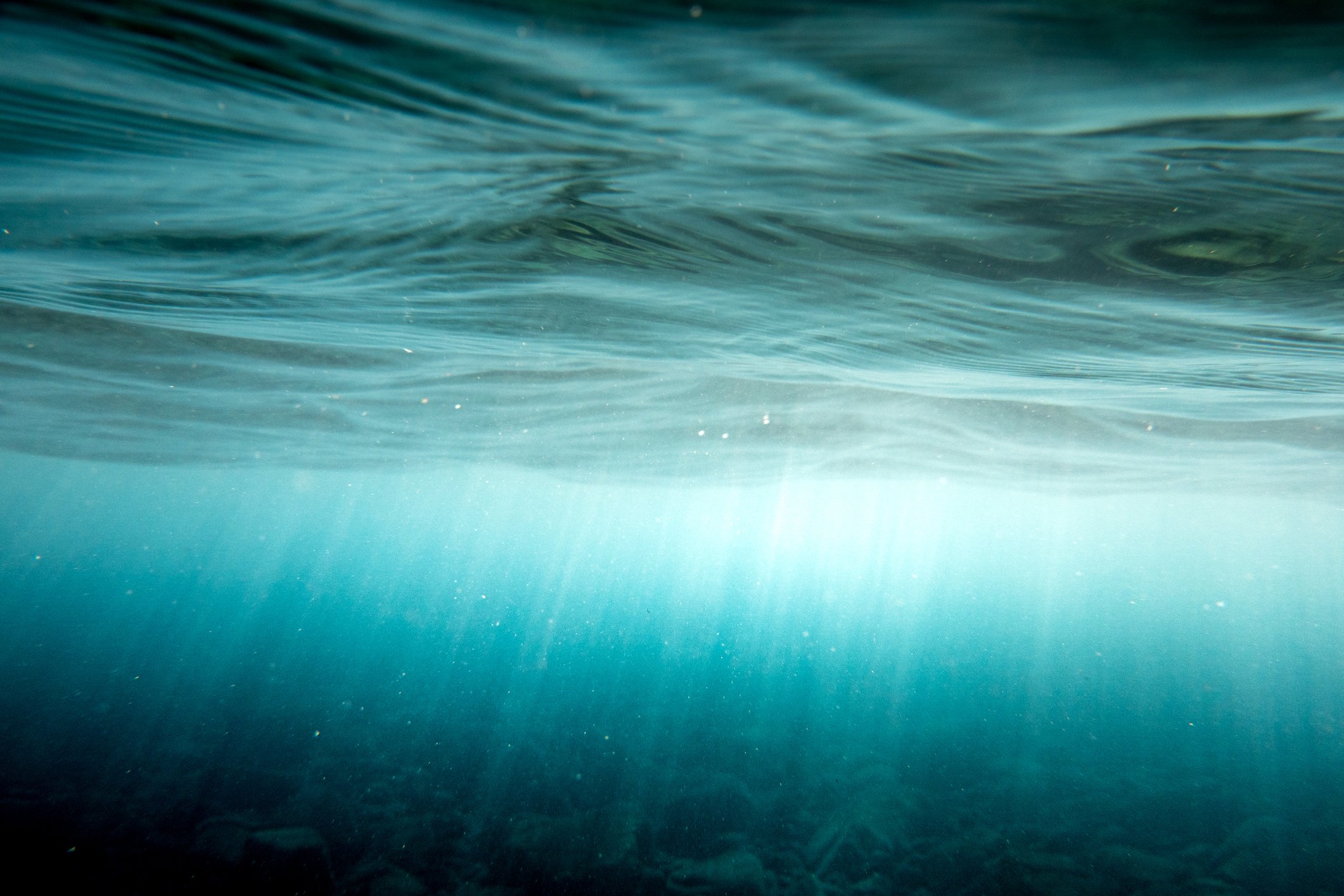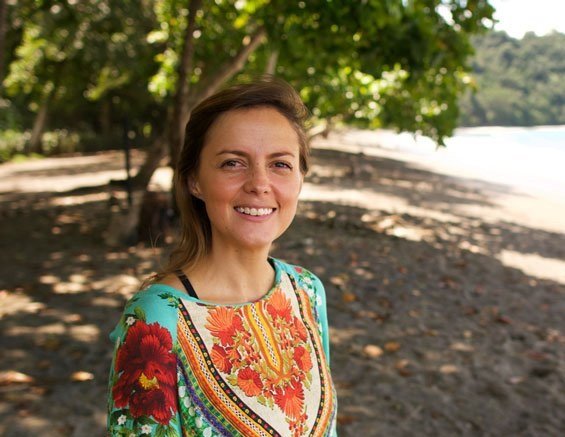
Let’s talk!
If you are interested to know more about ocean acidification, joining the OA Alliance by becoming a member or learning more about what we do, fill in the form.
We’ll get back to you as soon as we can!
You can also contact the team directly:
Jessie Turner Executive Director
-
As Executive Director, Jessie sets the strategic direction of the OA Alliance and develops and carries out annual programming, including contributions to international convenings. She also establishes partnerships across a variety of disciplines and coalitions, deploys communications strategies across multiple scales, and supports members in the development of practicable ocean acidification adaptation and resilience strategies.
Jessie served as lead facilitator to the Pacific Coast Collaborative (PCC)’s Ocean Acidification and Hypoxia Working Group between 2014 and 2023. The PCC is a collaboration between the U.S. states of California, Oregon, Washington, and the Canadian Province of British Columbia working together on climate issues that impact the North American West Coast region.
Jessie has 15 years of experience working in public policy development, advocacy, and stakeholder engagement at local to international scales. She has worked on wide-ranging issues, including affordable homeownership, healthcare, energy efficiency, food waste, climate, and marine policy.
Email: jturner@unfoundation.org
Juliana Corrales Communications Lead & Creative Consultant
-
Juliana (Jula)'s work has focused on providing creative direction including a complete brand revamp, the creation of an effective communications strategy and building on the science communications efforts of the Alliance. She also focuses on building stronger relationships with the Alliance’s Affiliate members with the aim to showcase their work through innovative collaborations.
These days she’s finding new and more creative ways of making the “unseen” impacts of climate-ocean change seen and emotionally felt.
With 10+ years of experience in creative communications and a MA in Sustainable Natural Resource Management, Juliana elevates the branding and communications of NGOs and initiatives to better reflect the impact of their work. Her multidisciplinary experience at an international level, gives a unique perspective that allows her to better engage with all stakeholders to create innovative communications products.Juliana is a Costa Rican ocean advocate that focuses on uniting creativity with ocean conservation.
Email: jcorrales@unfoundation.org
Dr. Annika Frosch
OA Action Plan Lead &
International Policy Consultant
-
In this role, Annika assists members with creating their OA Action plans and provides insights into policy, including EU directives and Regional Seas Conventions.
Primarily, Annika works as a research fellow at the Shipping and Oceans Research Group of the Bartlett School of Environment, Energy, and Resources at University College London (UCL). At UCL, she is working on ocean governance and policy. Currently, she is following the negotiations in relation to the decarbonization of the shipping industry at the International Maritime Organization. She is interested in the dynamics between different levels of governance, with a particular focus on specific country groups, such as the Caribbean. Annika also continues to work on OA, a topic she started to explore during her Master’s degree and further developed throughout her PhD dissertation. Annika has completed her PhD at the European University Institute, where her thesis focused on governance solutions to address the complex scientific realities of OA. Her doctoral studies were funded by the German Academic Exchange Service.
Previously, she has been a visiting scholar at the Asia-Pacific Center for Environmental Law at the National University of Singapore, the UCL Energy Institute Shipping Research Group, and the UC Davis Center for Environmental Policy & Behavior and the Bodega Marine Laboratory. Annika holds LL.M.s from the EUI, the University of Oslo and a Maîtrise from Aix Marseille University. In addition, she has gathered teaching experience at the School of Transnational Governance, the University of Tübingen, and Wageningen University. She is also an assistant editor at Transnational Environmental Law.
Email: afrosch@unfoundation.org
Inken Dressler
European Project Lead, Policy & Legal Research Fellow
-
Inken specializes in European Law and Environmental Law. In her role at the OA Alliance, Inken advises on topics related to the incorporation of ocean acidification information and responses into the legal and regulatory frameworks of the European Union. Her research efforts focus on EU Directives and regional seas conventions.
Inken is currently pursuing a second bachelor’s degree in Biology at the University of Hamburg to deepen her knowledge of the natural sciences. She recently completed the joint Nordic Master Programme in Environmental Law (NOMPEL), where she was awarded the following joint degrees: Master of Legal Science from Uppsala University, Master of International and Comparative Law from University of Eastern Finland, and Master of Laws from the Arctic University of Norway (UiT). Inken also holds a Bachelor of Laws (LL.B.) degree from Maastricht University, where she minored in Psychology and in Business and Law.
Email: idressler@unfoundation.org
Dr. Reuben Makomere
Africa Programme Lead, Policy & Legal Research Fellow
Email: reuben@OAalliance.org
-
In his role, Dr. Makomere is contributing to, amongst other initiatives, better understanding and linking the governance of climate-ocean change to institutional changes that will be required to enable Africa to navigate the complex challenges posed by ocean acidification, climate change, and development across global, regional, and national scales.
With a focus on policy design, law, and governance broadly conceived, Dr. Makomere’s expertise encompasses multiple pivotal domains, including ocean acidification (OA), climate change, and developmental governance.
Dr. Makomere’s academic foundation lies in the field of law, holding Ph.D. in Law from the University of Tasmania Faculty of Law. He also has a Master of Science degree, awarded with distinction, from the Tongji University in Shanghai, China. His research spans a wide spectrum, delving into the application of existing legal and policy structures to catalyse responses to critical issues such as ocean acidification, existential risk, and climate change.
Dr. Makomere's contributions encompass authored book chapters and peer-reviewed publications. He has co-authored the ground-breaking book 'Africa's Right to Development in a Climate Constrained World.' This work critically dissects the intricate complexities involved in navigating the intersection of development and climate governance policies within the African context.
Currently, Dr. Makomere is engaged in pioneering research, "Mapping Policy for Supporting OA Monitoring and Research in the Western Indian Ocean (WIO)", in collaboration with the Western Indian Ocean Marine Science Association. This pioneering initiative is dedicated to curating and developing a policy blueprint for ocean acidification monitoring and research across 10 countries in the Western Indian Ocean region.
Dr. Makomere is a University Associate at the University of Tasmania, Faculty of Law with experience in research, international diplomacy, law and policy design in several countries including Kenya, Australia, and China.’
Edith Mari
UN Decade of Ocean Science Programme Lead & U.S. Policy Consultant
Email: emari@unfoundation.org
-
Edith Mari specializes in synthesizing research to make climate-ocean science accessible and captivating. Edie initially joined forces with the OA Alliance as the project lead for Exploring Our Changing Ocean: Impacts and Response to Ocean Acidification in the U.S.
In her current role as the UN Decade of Ocean Science programme lead, Edie champions OARS outcomes #2 and #7, and supports the OA Alliance in achieving its OARS Commitment for Change.
Edie also serves as U.S. Policy Consultant with the OA Alliance. In this capacity, she works with State agencies to advance domestic OA action toward achieving climate-ocean mitigation, adaptation, and resilience goals, and leads the U.S. Working Group.
Edie holds an undergraduate degree in Environmental Sustainability and Indigenous Knowledge from the University of Alaska Fairbanks and an MSc. in Disaster Preparedness and Emergency Management from Arkansas State University.
In all areas of life, Edie works to challenge narratives that perpetuate systemic harm. She is motivated by practicing community accountability and cultivating emergent strategy.
Mariama Fofana
Communications & Special Projects Coordinator
Email: mfofana@unfoundation.org
-
Mariama Fofana is a global development communicator passionate about storytelling that drives equity, builds empathy, and inspires action. She helps shape the Alliance’s external voice, managing digital content, supporting advocacy campaigns and strategic communications that make ocean acidification more visible and urgent. She also supports coordination across special projects that elevate the voices of those most impacted by Ocean Acidification.
Her work centers on amplifying underrepresented perspectives and connecting people across cultures through thoughtful and intentional narratives. As a former Peace Corps Response volunteer in Togo, she worked with an education-focused nonprofit to produce materials that uplifted young women’s voices and potential.
With a background in journalism and nonprofit communications and a graduate focus on international development and human rights, Mariama brings a nuanced and people-centered lens to global climate advocacy. She is a native French and Bambara speaker, currently pursuing an M.A. in International and Intercultural Communication at American University in Washington DC.







